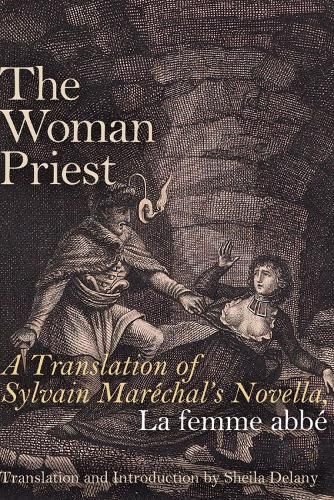Readings Newsletter
Become a Readings Member to make your shopping experience even easier.
Sign in or sign up for free!
You’re not far away from qualifying for FREE standard shipping within Australia
You’ve qualified for FREE standard shipping within Australia
The cart is loading…






My God! Pardon me if I have dared to make sacred things serve a profane love; but it is you who have put passion into our hearts; they are not crimes-I feel this in the purity of my intentions. -Agatha, writing to Zoe In pre-revolutionary Paris, a young woman falls for a handsome young priest. To be near him, she dresses as a man, enters his seminary, and is invited to become a fully ordained Catholic priest-a career forbidden to women then as now. Sylvain Marechal’s epistolary novella offers a biting rebuke to religious institutions and a hypocritical society; its views on love, marriage, class, and virtue remain relevant today. The book ends in La Nouvelle France, which became part of British-run Canada during Marechal’s lifetime. With thorough notes and introduction by Sheila Delany, this first translation of Marechal’s novella, La femme abbe, brings a little-known but revelatory text to the attention of readers interested in French history and literature, history of the novel, women’s studies, and religious studies.
$9.00 standard shipping within Australia
FREE standard shipping within Australia for orders over $100.00
Express & International shipping calculated at checkout
My God! Pardon me if I have dared to make sacred things serve a profane love; but it is you who have put passion into our hearts; they are not crimes-I feel this in the purity of my intentions. -Agatha, writing to Zoe In pre-revolutionary Paris, a young woman falls for a handsome young priest. To be near him, she dresses as a man, enters his seminary, and is invited to become a fully ordained Catholic priest-a career forbidden to women then as now. Sylvain Marechal’s epistolary novella offers a biting rebuke to religious institutions and a hypocritical society; its views on love, marriage, class, and virtue remain relevant today. The book ends in La Nouvelle France, which became part of British-run Canada during Marechal’s lifetime. With thorough notes and introduction by Sheila Delany, this first translation of Marechal’s novella, La femme abbe, brings a little-known but revelatory text to the attention of readers interested in French history and literature, history of the novel, women’s studies, and religious studies.